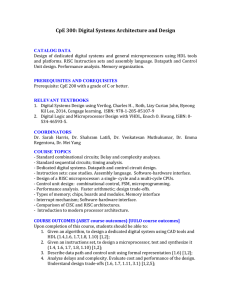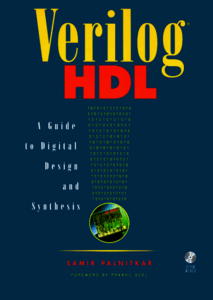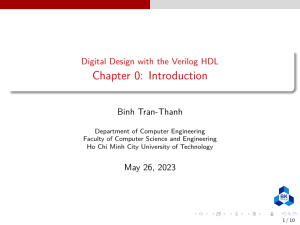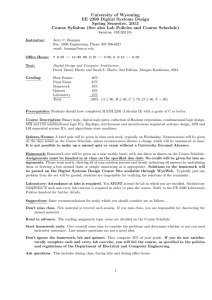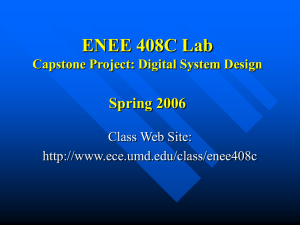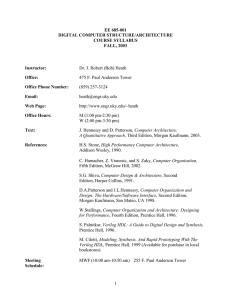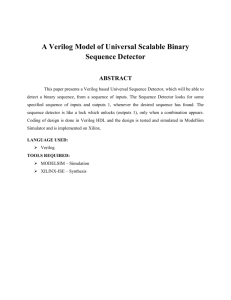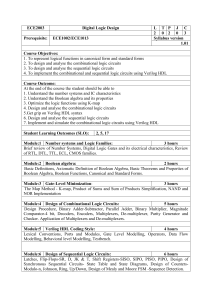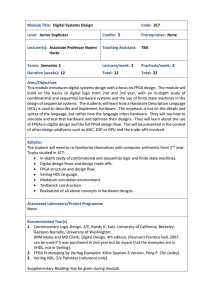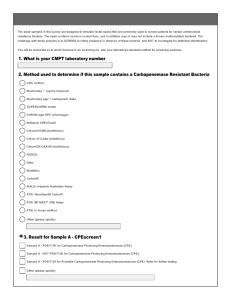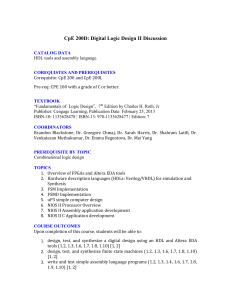CPE300L - Digital System Architecture and Design Laboratory
advertisement
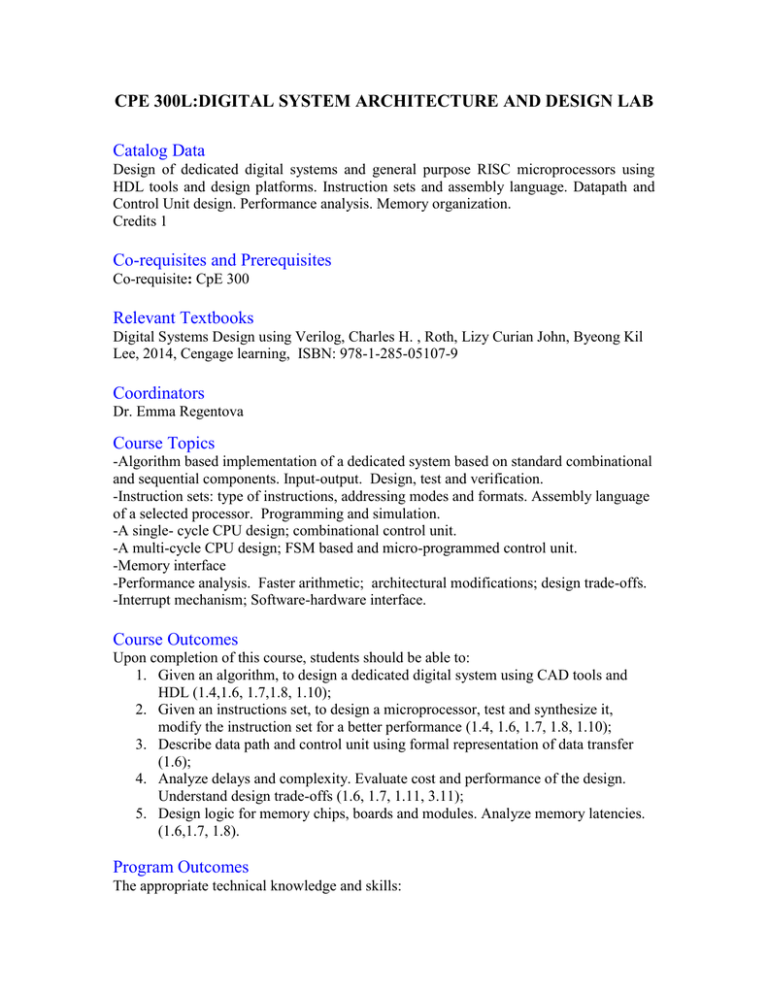
CPE 300L:DIGITAL SYSTEM ARCHITECTURE AND DESIGN LAB Catalog Data Design of dedicated digital systems and general purpose RISC microprocessors using HDL tools and design platforms. Instruction sets and assembly language. Datapath and Control Unit design. Performance analysis. Memory organization. Credits 1 Co-requisites and Prerequisites Co-requisite: CpE 300 Relevant Textbooks Digital Systems Design using Verilog, Charles H. , Roth, Lizy Curian John, Byeong Kil Lee, 2014, Cengage learning, ISBN: 978-1-285-05107-9 Coordinators Dr. Emma Regentova Course Topics -Algorithm based implementation of a dedicated system based on standard combinational and sequential components. Input-output. Design, test and verification. -Instruction sets: type of instructions, addressing modes and formats. Assembly language of a selected processor. Programming and simulation. -A single- cycle CPU design; combinational control unit. -A multi-cycle CPU design; FSM based and micro-programmed control unit. -Memory interface -Performance analysis. Faster arithmetic; architectural modifications; design trade-offs. -Interrupt mechanism; Software-hardware interface. Course Outcomes Upon completion of this course, students should be able to: 1. Given an algorithm, to design a dedicated digital system using CAD tools and HDL (1.4,1.6, 1.7,1.8, 1.10); 2. Given an instructions set, to design a microprocessor, test and synthesize it, modify the instruction set for a better performance (1.4, 1.6, 1.7, 1.8, 1.10); 3. Describe data path and control unit using formal representation of data transfer (1.6); 4. Analyze delays and complexity. Evaluate cost and performance of the design. Understand design trade-offs (1.6, 1.7, 1.11, 3.11); 5. Design logic for memory chips, boards and modules. Analyze memory latencies. (1.6,1.7, 1.8). Program Outcomes The appropriate technical knowledge and skills: 1.4 an ability to apply knowledge of computer science; 1.6. an ability to apply knowledge of engineering; 1.7. an ability to design a system, component, or process to meet desired needs within realistic constraints; 1.8. an ability to identify, formulate, and solve engineering problems; 1.10. an ability to use the techniques, skills, and modern engineering tools necessary for engineering practice,. The appropriate interpersonal skills: 2.2 an ability to communicate effectively. Computer/Equipment Usage Students use hardware description languages (Verilog), CAD software (Quartus) and design boards (DE2-115) to design, test and synthesize circuits. Grading Lab Assignments, Midterm test, Project. Course Syllabus Preparer and Date Emma Regentova, 1/30/2015
